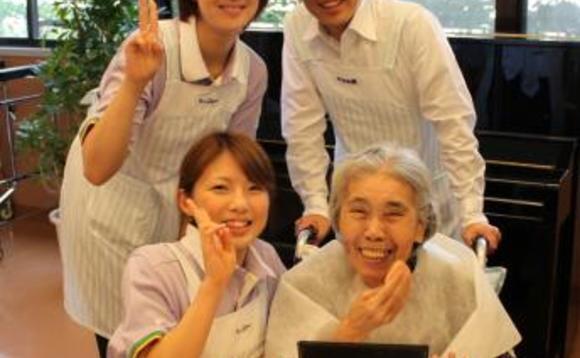
Funds monetize Japan's aging demographic

Japan may be the world second-largest economies but, by Asian standards, it is also one of the most mature. GDP growth is lackluster and the consumer market is pedestrian compared to those of the region’s emerging nations, which are still driven by urbanization, industrialization and young demographics.
"Invest in Japan? No, we are focusing on China and India at the moment; Japan's economy is no longer growing," is one global LP's withering assessment.
Although Japan's economy has been on the slide for the past decade, there is one pocket of vibrant growth: the country's aging population. Japan is the world's fastest-aging market – 14% of its population is 65 or above, up from 7% of its population 24 years ago. France, another rapidly aging country, took 115 years to reach that 14% mark.
Don't miss the boat
Opportunities tied to this demographic are abundant, and funds that exclusively target emerging markets with high GDP growth look set to lose out on it. Some, though, have taken notice and responded by broadening their healthcare mandates.
Earlier this month, Amsterdam-based Composition Capital Partners, acquired an undisclosed stake in a senior residential asset in Japan. The move surprised the country's private equity industry as this space has so far been dominated by local players. But the European fund knew it had identified a profitable niche.
"Japan's senior residential assets make stable rental income and investment risk is low," says William Shaw, Asia director and principal at Composition Capital. He adds that these assets are often mispriced and can be purchased at a discount.
Composition Capital currently manages a $171 million Asia fund that is nearly fully invested. A second fund is set to follow and it will likely target more senior residential assets. This conforms to the firm's global strategy: it has been investing in this asset class since 2005, executing transactions with an average ticket size of $30-40 million. Composition Capital's Japanese investments are made in partnership with local firms, which it does not name.
The firm has a particular sweet spot within the senior residential market: residencies that are operated as a chain business and that offer clear exit opportunities through industry consolidation.
One Tokyo-based lawyer notes that housing for the elderly is not yet a major target trend for real estate investors, although this may well change. Services related to aging, meanwhile, have seen some activity. As the industry matures, it's possible that strategies will become even more refined, for example targeting shopping services for those with limited movement and specialized outpatient clinics.
One firm that has ventured into this residence space is Tokyo-based J-Star, which acquired nursing home and senior-care operator HCM KK in April. At the time, George Hara, director and president of J-Star, told AVCJ that healthcare and senior care-related businesses are among the firm's core targets because of the continuous rise in Japan's senior citizen demographic. J-Star entered the deal with a view to expansion.
In 2008, another significant transaction was The Carlyle Group's $130 million investment in Goodwill Group, which owned real estate assets in an up-market residential area in Tokyo. That same year, mid-cap focused buyout firm J-Will Partners purchased Bon Séjour, which was sold on two years later to Benesse Corporation for JPY4.3 billion ($54.8 million). Asian Capital Alliance has also launched a specialized fund dedicated to investments related to senior homes and Japan's healthcare sector.
Older and poorer?
Japanese politicians are currently immersed in debates on pension reform, asking whether these programs can stretch far enough to meet the needs of an aging population. It has been suggested that the government increase the monthly allowance senior citizens receive for healthcare and insurance payments. This may in turn allow retirement home chain operators – which are currently run on a shoestring with all income directed to core operations – to improve their services.
Hirotaka Uchiyama, managing director of CLSA Capital Partners in Japan, has met with these concerns first hand during his time spent managing Fudo Capital, CLSA's real estate fund. As the cost of independence rises, Uchiyama expects demand for nursing homes to increase and foreign interest in the market to deepen.
However, he warns that that investing in elderly residential homes comes hand in hand with key operational risks, namely failed payments by tenants.
Uchiyama said he cannot deny that demands for senior housing will increase, and foreign fund's REITs now include capital allocations to assets in senior accommodation. However, he warns that investment in senior housing contains some operational risks such as failed payment by tenants.
"Senior accommodation investments generate cash flow from the rental income they receive from their tenants, who in turn are most likely to rely on their pension to make this payment. If for some reason tenants cannot make their monthly payments, what can the operator do? Japanese culture is unlikely to enable the operator to do anything unfavorable to older people."
Latest News
Asian GPs slow implementation of ESG policies - survey
Asia-based private equity firms are assigning more dedicated resources to environment, social, and governance (ESG) programmes, but policy changes have slowed in the past 12 months, in part due to concerns raised internally and by LPs, according to a...
Singapore fintech start-up LXA gets $10m seed round
New Enterprise Associates (NEA) has led a USD 10m seed round for Singapore’s LXA, a financial technology start-up launched by a former Asia senior executive at The Blackstone Group.
India's InCred announces $60m round, claims unicorn status
Indian non-bank lender InCred Financial Services said it has received INR 5bn (USD 60m) at a valuation of at least USD 1bn from unnamed investors including “a global private equity fund.”
Insight leads $50m round for Australia's Roller
Insight Partners has led a USD 50m round for Australia’s Roller, a venue management software provider specializing in family fun parks.





